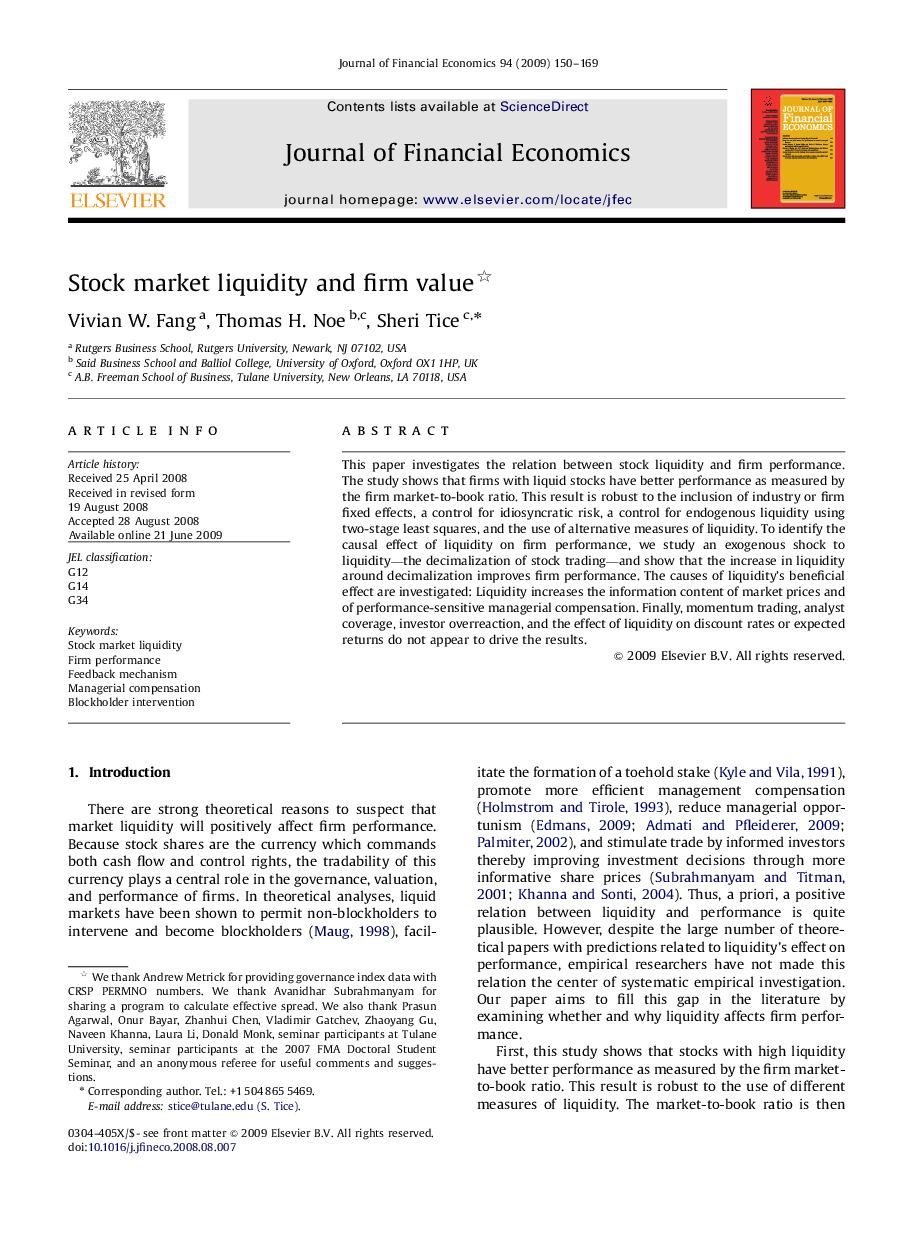| Article ID | Journal | Published Year | Pages | File Type |
|---|---|---|---|---|
| 960407 | Journal of Financial Economics | 2009 | 20 Pages |
This paper investigates the relation between stock liquidity and firm performance. The study shows that firms with liquid stocks have better performance as measured by the firm market-to-book ratio. This result is robust to the inclusion of industry or firm fixed effects, a control for idiosyncratic risk, a control for endogenous liquidity using two-stage least squares, and the use of alternative measures of liquidity. To identify the causal effect of liquidity on firm performance, we study an exogenous shock to liquidity—the decimalization of stock trading—and show that the increase in liquidity around decimalization improves firm performance. The causes of liquidity's beneficial effect are investigated: Liquidity increases the information content of market prices and of performance-sensitive managerial compensation. Finally, momentum trading, analyst coverage, investor overreaction, and the effect of liquidity on discount rates or expected returns do not appear to drive the results.
